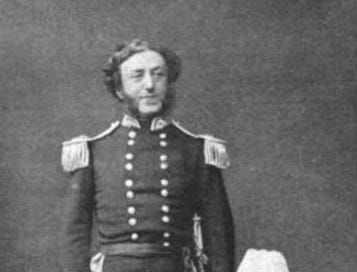The Kidderminster election scandal
One private detective brought about a by-election in the 1870s, thanks to his investigative work
At the start of 1874, a general election was held. In the Worcestershire town of Kidderminster, the Conservative candidate was Albert Grant, and his election agents were in the town drumming up support for Grant. He won the seat by just over 100 votes, being returned as Kidderminster's MP.
Many locals were not happy at the result. They gathered together to organise a petition, lodging it a month later. In their petition, they argued that Grant and his agents were guilty of bribery, having promise local electors both money as well as food and drink in exchange for their votes. It was noted that around 50 local pubs had offered free drink to those in the Conservatives' colours, who would have their names entered on a list of Grant's supporters.
Albert Grant, the Conservative candidate for Kidderminster in 1874
The petition came before Justice John Mellor at court, and as part of the evidence, a London private detective was called to appear. This detective was William Henry Bailey, a native of Old Windsor, who had lived for many years in the Pimlico and Kensington areas of the capital.
Bailey told the judge that in March 1874, he had been asked to travel to Kidderminster to investigate the election, in order to find material that proved the petitioners' arguments. He had gone to various pubs run by known Conservative supporters, and asked them for their accounts, to show whether Grant's agents had paid them any money. Bailey's evidence appeared to be truthful, but Mellor chose the moment to criticise the growing tendency of employing private detectives to gather evidence.
But Bailey had shown that publicans had indeed been paid both for voting for Grant, and for encouraging others to sign up in support of him. One publican admitted having previously been paid £11 for voting for Albert Grant nine years earlier. Although Grant had only declared £300 in expenses for the 1874 election, it was found that four times that had actually been spent. Justice Mellor found against Grant - he was unseated and ordered to pay costs.
A by election was duly held in Kidderminster on 31 July. It was again won by the Conservatives, but this time, by Sir William Fraser.
William Henry Bailey's evidence was one of only two times that he appeared in the press; the other time having been a year earlier, when he was the victim in an assault case - he had been attacked in Islington while on a professional 'watching' case. Little else is known about him. I believe that he is the man born in 1815 who, in 1871, was living in Kensington with his wife Ann and son James; I think Ann died in 1875, and by 1881, widower William Henry Bailey, describing himself as an 'agent', was a patient at St Thomas's Hospital. I believe he died three years later.
Although little is known about him - what he did before becoming a private inquiry agent, when he moved to London, and so on - this case shows a different line of work that some private detectives were engaged in. Bailey was employed to represent a whole group of individuals who believed that there had been corruption in the election, and who believed that Bailey would be able to find evidence of that. He did so - despite the judge's evidence dislike of his job, Bailey helped void Kidderminster's election results and ensure that Grant did not get away with bribery.




